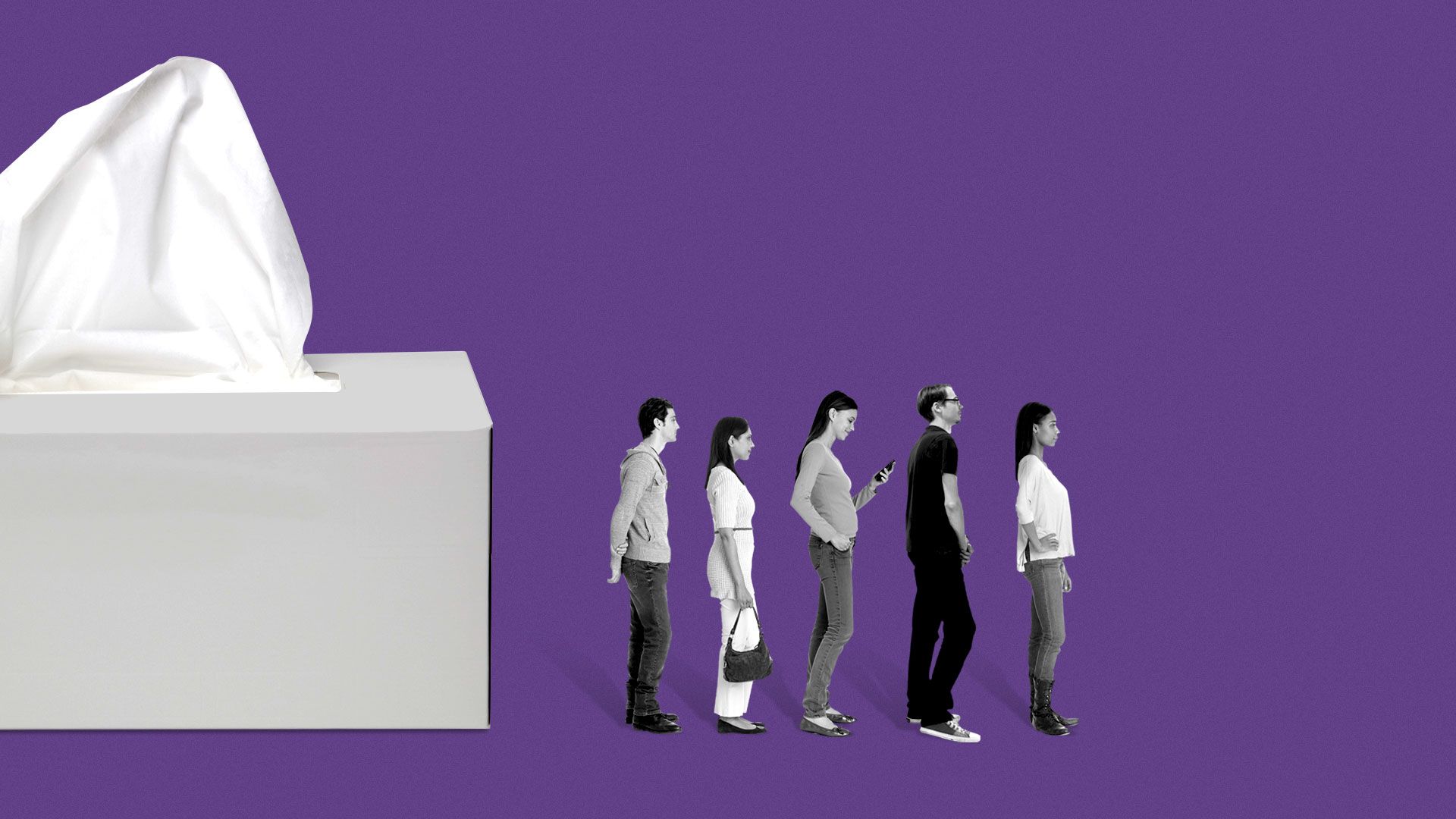
Illustration: Eniola Odetunde/Axios
The United States keeps reacting too late to the coronavirus, prolonging its economic pain and multiplying its toll on Americans’ health.
Why it matters: The spread and impact of the coronavirus may be unfathomable, but it's not unpredictable. And yet the U.S. has failed to respond accordingly over and over again.
First, it happened with testing — a delay that allowed the virus to spread undetected.
- Then we were caught flat-footed by the surge in demand for medical supplies in emerging hotspots.
- And the Trump administration declined to issue a national shelter-in-place order. The resulting patchwork across the country left enough economic hubs closed to crash the economy, but enough places up and running to allow the virus to continue to spread rampantly.
Between the lines: Proactive containment and mitigation steps would have required extraordinary political and economic capital, especially if they had come early in the process, when many Americans didn't grasp the full weight of this challenge.
- But making decisions based on today’s information — without an understanding of how much worse tomorrow will be — is also politically and economically risky, and carries the extra cost of more deaths.
What they're saying: A senior Health and Human Services official told me that if they could do it all over again, they would have engaged the private sector to ramp up medical manufacturing in mid-January — about two months earlier than ended up happening.
- “By waiting to fully appreciate and acknowledge this as a once-in-a-lifetime crisis, this was a colossal missed opportunity," the official said.
- Now, even as testing and hospital capacity remain limited, President Trump is eager for an economic recovery — even though, by all estimates, the outbreak is only going to get worse.
- Removing social distancing measures is “a catastrophically bad idea. The human cost would be devastating, and the economic toll from that devastation might be even steeper than what we’re seeing right now,” Indiana University’s Aaron Caroll and Harvard’s Ashish Jha wrote earlier this week in The Atlantic.
Case in point: The Trump administration squashed rumors more than a week ago that it was considering a national shelter-in-place policy. But it might have done some good at that point.
- “The economic impact is severe in scope, but limited in duration," Raymond James wrote in a research note dated March 15.
- But just a week later, the firm published a new note: “The government has likely missed its window ... The failure to establish a nationwide lockdown and instead allow individual states to make those decisions is likely going to result in the spread continuing.”
The bottom line: When I asked the HHS official how all of this keeps happening, the official said it’s at least partially due to disconnects — between Trump and his administration; between the government and the private sector, and between the U.S. and the rest of the world.
- “At the end of the day, the virus has slipped through all those cracks that exist between all of these entities,” the official said.
